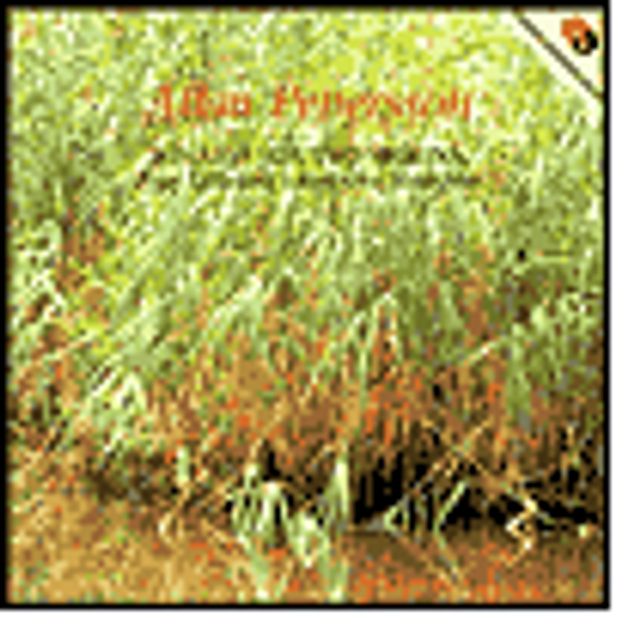Home
Allan Pettersson: Concerto for Violin & String Quartet; String Trio & Works for Violin and Piano
Barnes and Noble
Allan Pettersson: Concerto for Violin & String Quartet; String Trio & Works for Violin and Piano
Current price: $23.99


Barnes and Noble
Allan Pettersson: Concerto for Violin & String Quartet; String Trio & Works for Violin and Piano
Current price: $23.99
Size: OS
Loading Inventory...
*Product information may vary - to confirm product availability, pricing, shipping and return information please contact Barnes and Noble
Allan Pettersson
is among the highest-regarded symphonists of the 20th century, but his chamber music output is considerably less known. These early works have only been recorded a handful of times, yet they can offer insight into the composer's growth before he devoted himself almost exclusively to symphonic music. Spearheaded by violinist
Ulf Wallin
, this program provides high-quality readings of each of these works and should be illuminating for listeners only familiar with
Pettersson
's larger, later-life works. The main draw for many will be the
Concerto for Violin and String Quartet
of 1949, which opens the program and makes up over half of the album's run time. This is a lush work with numerous challenges for performers, both technically and harmonically, that from the outside would seem likely to limit the scope of listeners who would enjoy it. However, credit to the present performers, for these demands are met, and the results are thoroughly interesting and thought-provoking. The
Concerto
is the latest included work, chronologically, and it is a clear step toward the composer's symphonic writing. The earliest works here are the
Two Elegies for Violin and Piano
, from 1934. The 17-year-old
had survived a difficult upbringing and was finding support as a young composer, and these lovely, short tunes reflect the schooling the composer had undertaken; one could perhaps mistake these as having been written in the previous century. Pianist
Thomas Hoppe
,
Wallin
's fellow professor at the Hochschule fuer Musik Hanns Eisler Berlin, is another draw. Aside from ideal backing on the violin and piano works,
Hoppe
delivers a beautiful reading of
's
Lamento for Solo Piano
. There is a lot to take in here, and listeners will be rewarded with subsequent hearings. ~ Keith Finke
is among the highest-regarded symphonists of the 20th century, but his chamber music output is considerably less known. These early works have only been recorded a handful of times, yet they can offer insight into the composer's growth before he devoted himself almost exclusively to symphonic music. Spearheaded by violinist
Ulf Wallin
, this program provides high-quality readings of each of these works and should be illuminating for listeners only familiar with
Pettersson
's larger, later-life works. The main draw for many will be the
Concerto for Violin and String Quartet
of 1949, which opens the program and makes up over half of the album's run time. This is a lush work with numerous challenges for performers, both technically and harmonically, that from the outside would seem likely to limit the scope of listeners who would enjoy it. However, credit to the present performers, for these demands are met, and the results are thoroughly interesting and thought-provoking. The
Concerto
is the latest included work, chronologically, and it is a clear step toward the composer's symphonic writing. The earliest works here are the
Two Elegies for Violin and Piano
, from 1934. The 17-year-old
had survived a difficult upbringing and was finding support as a young composer, and these lovely, short tunes reflect the schooling the composer had undertaken; one could perhaps mistake these as having been written in the previous century. Pianist
Thomas Hoppe
,
Wallin
's fellow professor at the Hochschule fuer Musik Hanns Eisler Berlin, is another draw. Aside from ideal backing on the violin and piano works,
Hoppe
delivers a beautiful reading of
's
Lamento for Solo Piano
. There is a lot to take in here, and listeners will be rewarded with subsequent hearings. ~ Keith Finke


















